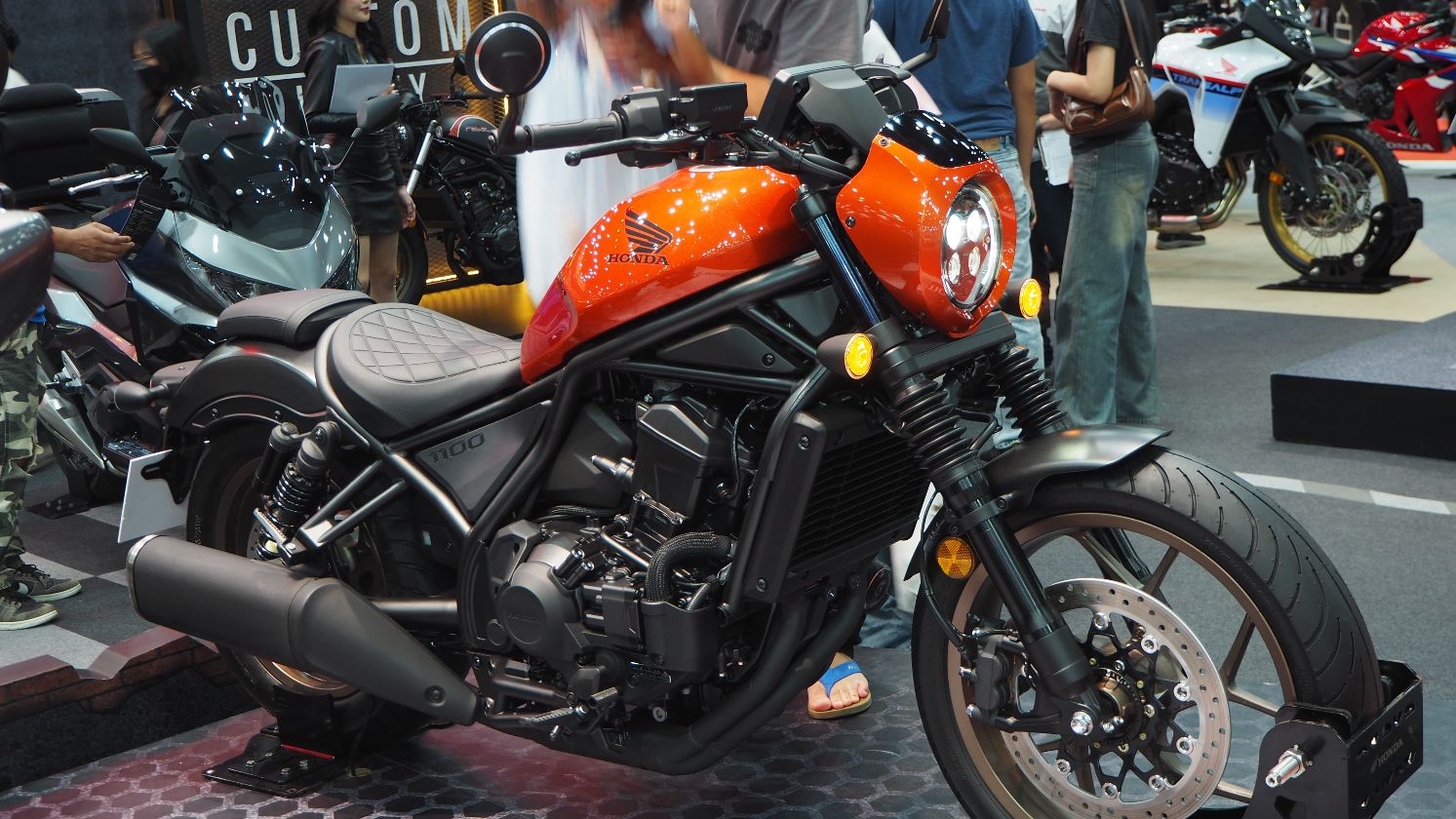Where Innovation Meets Extinction
Few things capture the American spirit quite like the roar of an engine and the gleam of a freshly waxed hood. Cars are status symbols. Yet the story of America’s automakers is one of triumphs and failures, where bold vision often met fierce competition. Some names still define the nation’s highways, while others have faded into history. To see who’s still driving the legacy forward—and who’s run out of gas—let’s begin with the 10 most prominent American car brands.
1. Ford
Ford's addition of the moving assembly line in 1903 sparked a manufacturing revolution that transformed automotive accessibility. It laid the groundwork for decades of market leadership. This pioneering approach enabled the mass production that would establish Ford's F-Series as America's best-selling trucks for 40 years.
2. Lucid Motors
With former Tesla executive Peter Rawlinson adding momentum to founders Bernard Tse and Sam Weng's vision, Lucid Motors has established itself as America's premium EV innovator. The company's Air sedan, crafted at its Casa Grande, Arizona facility, continues garnering awards for breakthrough battery range technology.
3. Dodge
Dodge has performance in its DNA. From the powerful Charger to the retro-style Challenger Hellcat, its cars keep the brand’s muscle legacy alive. Founded by the Dodge brothers in 1900, it now thrives under Stellantis to deliver high-octane excitement around the world.
 MrWalkr on Wikimedia4. Jeep
MrWalkr on Wikimedia4. Jeep
The passionate following behind Jeep's Wrangler speaks volumes about the brand's appeal among off-road enthusiasts. This loyalty stems from Jeep's authentic military roots in World War II and continues today as the rugged Gladiator pickup rolls off American assembly lines in Toledo, Ohio.
 IG-2000 at English Wikipedia on Wikimedia
IG-2000 at English Wikipedia on Wikimedia
5. Chevrolet
From its iconic bowtie emblem first unveiled in 1913, Chevrolet has evolved into an automotive powerhouse, with its Silverado truck claiming America's second-highest sales through mid-2025. Now, as General Motors' cornerstone brand, Chevrolet is charging into the electric future, setting EV standards.
6. Rivian
Starting with its ingenious "gear tunnel" storage design, Rivian has reimagined what electric vehicles can achieve in the adventure space. This American startup crafts its R1T pickup and R1S SUV lineup in Normal, Illinois, earning powerful endorsements through investments from industry titans Amazon and Ford.
7. Lincoln
Lincoln, Ford’s luxury division since 1922, is known for its elegant design and signature "suicide doors" on classic Continentals. Today, it crafts upscale sedans and SUVs with whisper-quiet cabins and smooth rides. Lincoln’s presidential legacy continues to shape its refined, distinguished character in the luxury car market.
 Jeremy from Sydney, Australia on Wikimedia
Jeremy from Sydney, Australia on Wikimedia
8. Cadillac
When Cadillac introduced the first mass-produced V8 engine, it set the stage for decades of automotive innovation. Today, as General Motors' luxury division, this pioneering spirit lives on through premium vehicles like the celebrity-favorite Escalade, each proudly wearing the historic crest inspired by Antoine de la Mothe Cadillac.
9. Chrysler
Chrysler, a hallmark of American automotive innovation since 1925, created the minivan segment with its 1980s breakthrough. Today, its Pacifica plug-in hybrid dominates a sparse hybrid minivan market, showcasing the brand’s expertise in forward-looking and family-oriented vehicle design.
10. Tesla
While traditional automakers were still figuring out electric vehicles, Tesla blazed the trail as America's EV pioneer. Now headquartered in Texas, this innovative disruptor dominates with its Model Y leading U.S. electric sales, and its entire passenger lineup even swept Cars.com's 2025 American-Made Index rankings.
The next ten brands tell a different story—icons that once ruled America’s roads before fading into automotive history.
1. Pontiac
Named for a rebellious Odawa chief, Pontiac began modestly in 1926 as a companion to GM's Oakland line before surpassing and replacing it. The brand reached iconic status as GM's performance division with the GTO and Firebird, only to meet its end in 2010's restructuring.
 Matt Morgan from Alameda on Wikimedia
Matt Morgan from Alameda on Wikimedia
2. Oldsmobile
Ransom E. Olds established Oldsmobile in 1897 and transformed the automotive industry forever. The brand made history with the 1901 Curved Dash as America's first mass-produced vehicle. Later, innovation continued with groundbreaking achievements like the 1949 Rocket V8 engine. After leading the industry for over a century, production finally ceased in 2004.
3. Plymouth
Plymouth sailed into American car history with ambition worthy of its Mayflower emblem. Launched in 1928 as Chrysler’s affordable brand, it built icons like the 1964 Barracuda. After decades of innovation, the once-proud marque finally docked for good in 2001.
4. Mercury
The Mercury Cougar's 1967 debut marked the brand's golden age, but declining relevance ultimately led to its discontinuation in 2010. In 1938, taking inspiration from the swift Roman god Mercury, Ford's ambitious mid-range brand raced onto the scene to bridge the gap between Ford and Lincoln vehicles.
5. Saturn
In 1985, General Motors boldly stepped into the ring with Japanese imports, launching Saturn as its scrappy challenger brand. Armed with innovative dent-resistant polymer panels and a revolutionary no-haggle pricing policy, this "different kind of car company" ultimately couldn't go the distance and closed its doors in 2009.
6. DeSoto
DeSoto, named after explorer Hernando de Soto, was introduced by Chrysler in 1928 as a mid-priced brand known for its innovative Airflow models. Despite early success, it struggled with identity and was discontinued after the 1961 model year, with production ending in late 1960.
7. Packard
Packard’s story is one of brilliance and decline. Once a true luxury innovator, it introduced the first production car air conditioning in 1940 and proudly declared, “Ask the Man Who Owns One.” But after merging with Studebaker in 1953, the brand lost its identity and disappeared by 1958.
8. Studebaker
From humble beginnings crafting horse-drawn wagons in the 1850s, Studebaker blazed a singular path in American transportation, emerging as the only major manufacturer to master both carriage and automobile. Their journey culminated in the space-age Avanti of 1962, before fading away—first stateside, then in Canada.
9. AMC (American Motors Corporation)
In a strategic move against Detroit's automotive giants, Nash-Kelvinator and Hudson Motor Car Company merged to form AMC in 1954. The underdog manufacturer later challenged conventions with its Gremlin subcompact and achieved lasting influence through the pioneering Cherokee XJ SUV before Chrysler's 1987 acquisition.
 1970 AMC Gremlin by Charrua NYC
1970 AMC Gremlin by Charrua NYC
10. Kaiser-Frazer
When industrialist Henry J. Kaiser joined forces with auto executive Joseph Frazer in 1945, their venture sparked fresh postwar innovation, which led to America's first padded dashboard in 1947. The company later launched its compact Henry J namesake before shifting to utility vehicles and ending car production in 1955.























